- Home
- Angela Huth
Another Kind of Cinderella and Other Stories Page 2
Another Kind of Cinderella and Other Stories Read online
Page 2
‘Excuse me, I’m so sorry . . .’
‘Reg, isn’t it?’ Cinderella gave him a wonderful smile. Her grasp of every name in the company endeared her to all.
‘I have to let my mother know . . .’
‘Like the dress? Isn’t it gross?’ She laughed. ‘See you later.’
Reginald spun home, weightless. His mother’s fury, the cold sausage for his lunch, the smell of the kitchen, the jibes at his general uselessness, meant nothing to him. Impervious to everything but the extraordinary thumping of his heart, inspired by Cinderella’s smile, he was in and out of the house with astonishing speed. As he hurried back up the garden path, almost enjoying his mother’s wailing in his ears, Reginald knew he was in love with Cinderella, and was to spend the afternoon playing for her alone while she danced above him at the ball.
In the next two weeks of rehearsal, Reginald did not run into Valerie backstage again. But in his new state of love he was quite happy to be patient, to hear her sweet voice above him, hear the tapping of her feet, and to catch the occasional glimpse of her when she was upstage. Her prancing little body and enchanting smile were particularly appealing in her ragged dress, though he saw her best at the ball: the choreographer had naturally arranged for the prince to waltz with his Cinderella as far upstage as possible. Reginald, putting his soul into every note of the banal waltz, followed her steps as Bev swung her about. They gazed into each other’s eyes, the woman and the girl, acting the kind of happiness which was so convincing it caused Reginald a jealous stab. Fact was, they were much better actors than he had ever given them credit for. The audience would believe this was Prince Charming – not Bev the part-time optician’s model – in love with Cinderella, not Valerie who, Reginald knew, sometimes sang in a pub to make ends meet.
He longed for an event that he knew would never happen: waltzing himself with Cinderella in some posh hotel ballroom with chandeliers, far from Winterstown. Then on the balcony of their suite, the moonlight and roses bit: he would play a little tune – one of his own compositions, maybe, while she sipped champagne. Next, he would kiss her. So hard she could no longer smile. After that. . . but there his fantasies stalled. He could only imagine a paling dawn sky.
None of that would ever happen. It was some consolation, watching her, to know that at least this was all make-believe. What Reginald could not have borne would have been Val (she had become Val in his mind) dancing, in real life, with another man. He closed his eyes as he pulled the final note from his violin. He longed.
At the first performance of Cinderella, as always, there was a full house. The audience, mostly pensioners and schoolchildren, loved it. Val, taking many bows, had never looked so appealing. She and Prince Charming held hands and smiled copiously at each other. Reginald would have liked to have gone round to her dressing-room and joined the crowd of admirers he presumed would be there, tell her she was wonderful. As it was, he had to hurry. His mother would be furious at his lateness caused by the prolonged applause.
Once again, he ran into Valerie, surprisingly, in the passage that led to the dressing-rooms. She was still in her balldress, an old cardigan slung around her shoulders.
‘Good first house, wasn’t it?’
Reginald nodded. The compliments rose, then withered in his throat.
‘Bev and I are just off for a hamburger. See you.’
She was gone.
On his way home, Reginald decided what to do – for now, he believed, he should waste no more time, act fast. He would send her flowers. Huge great bunch in cellophane, small card in the envelope saying From a secret admirer. The thought of this plan went some way to dispelling his fury with himself for not speaking to her. She must think him a useless old man. But time would change all that. Plans beginning to crowd his head, he opened the front door.
‘Is that you, Reg?’ His mother’s shriek was more than usually annoyed.
Protected from her by his inner strategies, Reginald went calmly to deal with her cocoa, the wearying process of putting her to bed, and all the arrows of her fury.
Reginald dreamed that night of himself and Cinderella at a princely ball, but he never sent the flowers. He managed to leave early enough, next morning, to get to the florist before rehearsals for a concert. But he was so confused by the scents and colours and prices, he left without buying. He’d had in mind pure white lilies, or cream old-fashioned roses mixed with cornflowers – the kind of thing his father had been so proud of in his border. The florist seemed to have only crude red or rust flowers on stiff stems, leaves unbending as swords. Nothing worthy of Cinderella.
Then, just as he was coming out of the shop – the assistant’s eyes contemptuous on his back – he observed Val and Bev walking down the other side of the High Street. Both wore jeans and anoraks. For a moment it was quite hard to recognise them. They paused, kissed each other on the cheek, and Bev disappeared into Boots. Valerie, turning to continue on her way, saw Reginald. She waved, smiled her glorious smile, arming him for the day against all adversities.
There were plenty of those. At the rehearsal for a concert in the Winterstown Hall, Lewis was at his most waspish and petulant, quibbling with Tom’s tone and Reg’s high C, and sneering so hard at poor old Jim Reed on the drums it was a wonder the man did not resign on the spot. But as his bow soared through the Enigma Variations, transporting him to the English countryside in May, walking in mead-owlands with Cinderella, it came to Reginald that the only way to make any progress with her was to do something. Like ask her out for a drink.
At the lunch break that day the other members of the orchestra left for an hour in the pub. Reginald could not be persuaded to join them. He wanted to be on his own: Meals on Wheels was dealing with his mother. There was no reason to move.
He sat, violin across his knees, in the forest of empty chairs on the stage. The music played on in his ears, not disturbing the real silence. Down in the vast hall, chairs were stacked against the walls ready to be regimented for the next concert. A thin rain pattered against high windows. The light on the bare walls was dull as old stone, and it was cold. But Reginald spent an undisturbed lunch hour, oblivious of everything around him, walking with Valerie in Herefordshire (a place he had always longed to visit). He was, for once, at peace.
After the performance that night he hurried to the stage door, and then out into the alleyway at the back of the theatre. It was still raining, a cold hard rain that damply spotted his mackintosh. He stood, eyes on the square light of the glass door, violin case under one arm, heart pumping audibly. Members of the cast and orchestra came out in groups, and singly. Once a show was under way, nobody planned much of a social life after performances. They were all keen to get home.
Almost last, Valerie emerged. She wore a scarf wound high round her neck, but no hat. In the rain, and the light from within, the frizzy mop of her hair glittered like a swarm of fireflies. Behind her, Bev was talking to the porter at the stage door. She wore her imitation leopardskin coat and seemed to be cross about something. Val saw Reg.
‘What’s up, darling?’ she asked.
Reg moved his free hand on to the solid, familiar curves of his violin case.
‘I was wondering,’ he said, ‘if you’d care for a quick drink on your way home?’
He deliberately said quick because there was not much time. He had taken the precaution of making up some story to his mother about having to see the manager, but her credulity would not stretch far. Half an hour’s grace, at the most.
Val laughed. It was not the friendly laugh. But perhaps sound was distorted here, out in the rain.
‘Why not?’ she said. ‘Bev and I and some of the others are going down to the Drake. Want to join us?’
Reg paused for a second. Val’s idea did not fit in with his plan at all. The last thing he wanted was to be with her in a crowd, perhaps unable to exchange a word. He wanted her to himself, just a small table, somewhere, between them. He wanted her full attention while he told her some
of the things that had been piling within for as long as he could remember, and had never been spoken. His violin had been the sole recipient of his feelings, the music his only consolation. But man cannot live by music alone, as Tom, who had many an eager woman on his arm, so often said.
‘I don’t think I will, thanks. My mother . . .’
‘Very well. Another time.’ Val was not interested. But then something of the approaching Christmas spirit, Reginald supposed it was, entered her funny little head. She decided to be kind. ‘But tell you what: tomorrow after the matinee? Bev’s going to the dentist so we can’t go over to her mum as per usual. We could have a coffee.’
‘A coffee?’
A kaleidoscope of difficulties swooped through Reg’s brain. More excuses to his mother would have to be thought up, and where would be a suitable place to go?
‘Very well,’ he said.
‘Meet you here after the show, then. Bev!’
Bev hurried out, glanced at Reg. Val was all smiles.
‘Blimey, what a night.’ Bev snapped up an umbrella, put her arm round Val, drawing her beneath it. ‘Cheers, Reg,’ Bev said, and Reginald watched Val slip her arm into the crook of the nylon leopardskin one.
They moved away, in step, huddled snugly under the umbrella, confident of its shelter, like those people in the advertisement for a life insurance company. Reginald waited till they were out of sight. Then, hugging his violin case, he turned into the full blast of the rain, in the direction of home.
Reginald and Val sat at a small table in the window of the Wimpy Bar - nearest eating place to the theatre. Reginald had suggested they go to the tearooms further down the High Street, altogether a more comfortable place, but Val had insisted she fancied chips in the Wimpy.
Two cups of thin coffee sat between them. Val covered her chips with spurts of ketchup from a plastic tomato. Reginald kept one hand on his violin case, propped up beside him. His head was empty from lack of sleep. He was drained, exhausted, by his imaginings. He didn’t know where to begin. Ten minutes of their half-hour had passed, and all he had done was to make a disparaging remark about Lewis Crone. Val had disagreed. She said far as she was concerned he was a good sport.
‘It must be boring down in the pit,’ she said eventually, ‘not seeing anything.’
‘You can see enough. I get a good view of you dancing in the ball scene.’
‘That!’ Val laughed, more friendly than last night. ‘See Bev treading on my toes? She’s a horrible dancer.’
She laid one hand flat on the Formica tabletop, examined her nails with great interest as she slightly lifted each finger in turn. Reginald wanted to cover her hand with his.
‘You’re a lovely dancer, though,’ he said.
Val gave him a teasing look. ‘Reg! Haven’t you got a wife, a woman? Someone? You always look so down in the dumps.’
‘There’s my mother to be looked after.’ Reg suppressed a sigh and tapped his violin case. ‘There’s my music. I’m all right, just not one of life’s jokers.’
‘No.’
The speech Reg had rehearsed most of the night, inspired by Bach under the bedclothes, welled. It was now or never, he thought.
‘But I’d like to get to know you – nothing . . . out of line. Cup of tea sometimes. Talk. You know. I haven’t much of a life socially. What with my mother. Drink with Tom, Saturdays. End of a concert drink with the boys. Not occasions to talk . . .’
Reg petered out, aware he had lost the thread of his message. The rubbish he was talking sounded close to self-pity. He didn’t want Val’s pity: last thing he wanted. And she had stopped picking at her chips. She pushed her empty cup away, stiff-handed. Gave a tight little smile, as if she decided she must get through this little scene as graciously as possible, but it was boring.
‘Poor old Reg. Well, it’s fine by me if we have another coffee some time. Though I’m leaving Winterstown, March. Doing three months in Manchester, an Agatha Christie.’
Reginald’s heart contracted. He would have to think about that later: the bleakness of the spring.
‘Anyway,’ she smiled, nicely this time, ‘you must be fifteen years older than me, Reg.’
‘Probably.’
It was dark outside now. The pair of them made awkward shapes reflected in the plate-glass window. Madness seized Reg so fast he was unable to control it, to reason with himself.
‘But I’m over the moon about you, see. Nothing bothersome, mind. Just, watching you dancing away, Cinderella in her ballgown, I fancied your pretty smile was for me. Daft, I know’ He saw her look of alarm, tried to slow himself. ‘All I want is to talk to you, don’t I? To tell you things, give you a good time, spend my savings on you. I’ve a fair bit put on one side – nothing to spend my wages on all these years. What do you think, Val? Would you let me, sometimes?’
Val gave a small laugh, perturbed. ‘I don’t want anything like that, nice though you are.’
‘No. Well. I didn’t rate my chances high.’
‘It’s not that I’d mind a chat from time to time. But Bev wouldn’t like it. There’d be trouble. I’ve had enough trouble.’
‘Trouble with Bev?’
‘Bev’s my friend.’
‘I know Bev’s your friend. But she can’t order your life about. A woman.’
Val sighed. ‘Have to be going,’ she said. ‘Meeting her at six.’
‘Meeting Bev? What’s she got, this Bev?’
In his confusion, Reg could not be sure of anything. But for a moment – so short he might have imagined it – he thought Val looked scared.
‘A nasty temper if things don’t go her way.’
‘You shouldn’t put up with her. I mean, do you like her?’ Later, Reg reflected, his boldness may have been impertinent.
Val shrugged. ‘Thanks for the coffee ‘n’ chips.’ She stood up, swirling the scarf round her neck.
‘Cinderella,’ said Reg. ‘Cinderella.’
She bent briefly towards him. He could smell her breath: ketchup, chips, coffee. She patted his shoulder.
‘Chin up, Reg.’
‘I want you to know’ – her hand fled from his shoulder – ‘that every performance it’s you I’m playing for, Val, down there, all that rubbishy music. One day I could play you Brahms, on a beach somewhere, tide coming in, never go back to the orchestra. They’ll never make me first violin is what I’m afraid of, not even when Tom goes. You could, you could come with—’
Val turned from his jibbering, impatient. Reg could tell from her eyes she thought he was a silly old fool, letting go.
‘What you must remember is this, Reg.’ Her voice was harsh as flint now, cutting the quick of him. ‘You’re a nice guy, but I’m another kind of Cinderella.’
She was gone. Striding through the purplish light, the ketchup tables, the bleak landscape of Formica and burgers. Reginald remained standing, clutching his violin case, peering through the window. In the late-night shopping crowds he thought he glimpsed a leopardskin coat, but of Val he could see nothing.
That night he kept his eyes on the music, did not look up to see Cinderella in her balldress dancing with Bev the prince. Reg had always known she was not for him, any more than was the position of first violin. But who was she for? What did she mean, another kind of Cinderella?
After the performance he hurried off to avoid an accidental meeting. It was a night full of ironic stars. Just twenty-four hours ago, in the rain, she had given him some hope. He didn’t know why he bothered with hope, anymore.
‘Is that you, Reg?’ Furious voice. Usual thing.
Reg made his way slowly across the small, stuffy hall and into the front room. He opened the door, surveyed the familiar picture of the monstrous old woman who was his mother: the mother who had messed up his entire life. Plumped up with indignation, she sat upright in her chair, accusation flaring across her purple cheeks, obscene legs swinging. If it hadn’t been for his binding duty to her, things would have been different. If he had been
a worse son he would have had a better chance.
‘What kept you then? Dancing with Cinderella?’
She gave a sneering laugh, thumping one swollen hand into the soft mess of crochet on her knee. Reginald swung his violin case above his head, and moved towards her in silence before they both screamed.
Dressing Up
‘Please, just one more chance,’ cooed Prunella in her most persuasive voice. ‘Just lunch and the afternoon.’
There was a long silence while her daughter Audrey, on the other end of the line, struggled to weigh up the pros and cons of her mother’s request.
Prunella, although dreading this call, was fed up with watching time flood by with no sight of her grandchildren. It was over two months, now, since the unfortunate incident. Surely enough time for anyone to find forgiveness. But Audrey had never been rich in charity. Even as a small child she had shown signs of her father’s hardness. She was vigorous in her condemnation, ungenerous in her understanding. Prunella had always been a dutiful mother, and hoped she always would be. But she couldn’t like Audrey.
And how beastly she had been about the incident. A very minor mishap: no ill effects on the children. They had had fun, as they always did have when they came to their grandmother. More than they had at home, for the most part. It wasn’t Prunella’s fault Audrey had been held up in traffic, so arrived late to collect them on that particular day. Well, by six, half an hour later than her usual time for the first one, Prunella was exhausted, in need of something. She must have had two gins and tonics before Audrey arrived. Having started late, perhaps she had drunk them faster than usual. What with one thing and another, on the way down the path to Audrey’s car she had stumbled, cut her knee, felt dizzy. There had been quite a palaver, Audrey pulling her up, grumbling away, telling the children to buzz off and find a plaster. ‘You’re irresponsible, Mother,’ she had hissed when the children, all sympathy for their grandmother, had run off. ‘How do you expect me to feel about leaving them with someone who drinks? Anything could happen. I shan’t let them come again.’

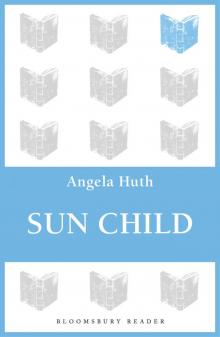 Sun Child
Sun Child South of the Lights
South of the Lights Virginia Fly is Drowning
Virginia Fly is Drowning Of Love and Slaughter
Of Love and Slaughter Such Visitors
Such Visitors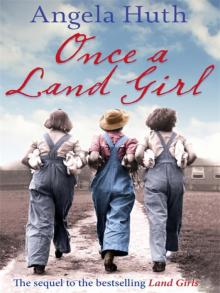 Once a Land Girl
Once a Land Girl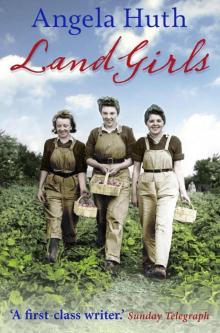 Land Girls
Land Girls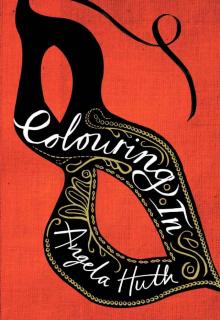 Colouring In
Colouring In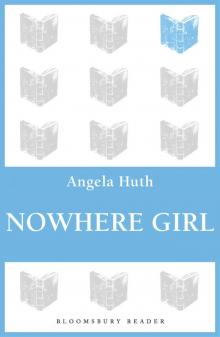 Nowhere Girl
Nowhere Girl Monday Lunch in Fairyland and Other Stories
Monday Lunch in Fairyland and Other Stories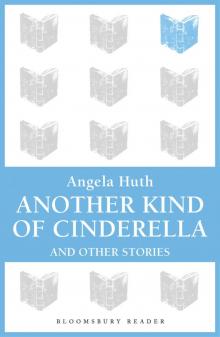 Another Kind of Cinderella and Other Stories
Another Kind of Cinderella and Other Stories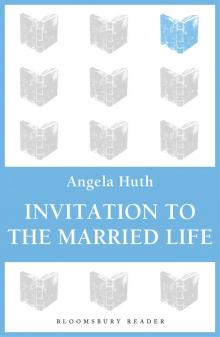 Invitation to the Married Life
Invitation to the Married Life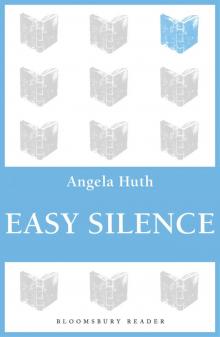 Easy Silence
Easy Silence